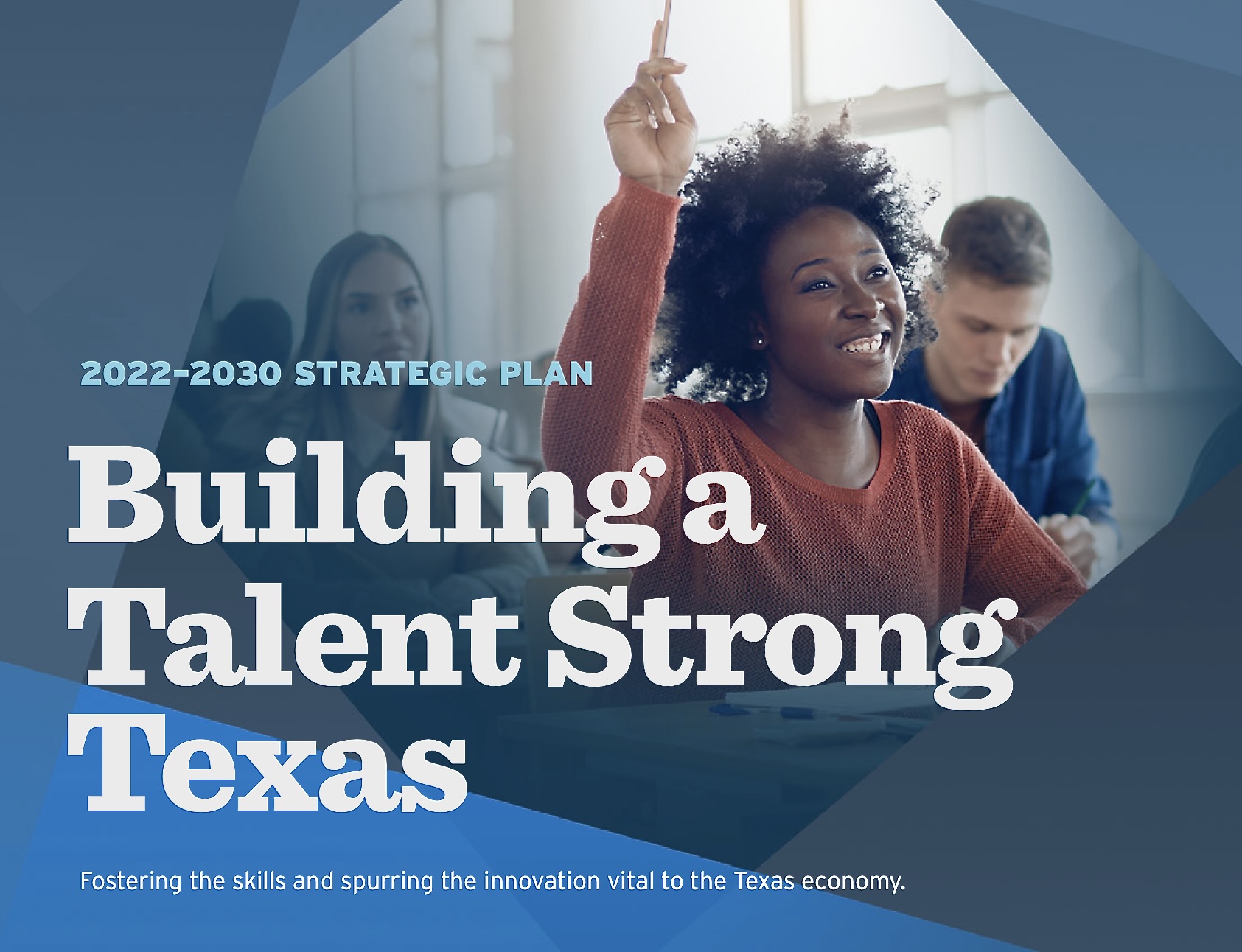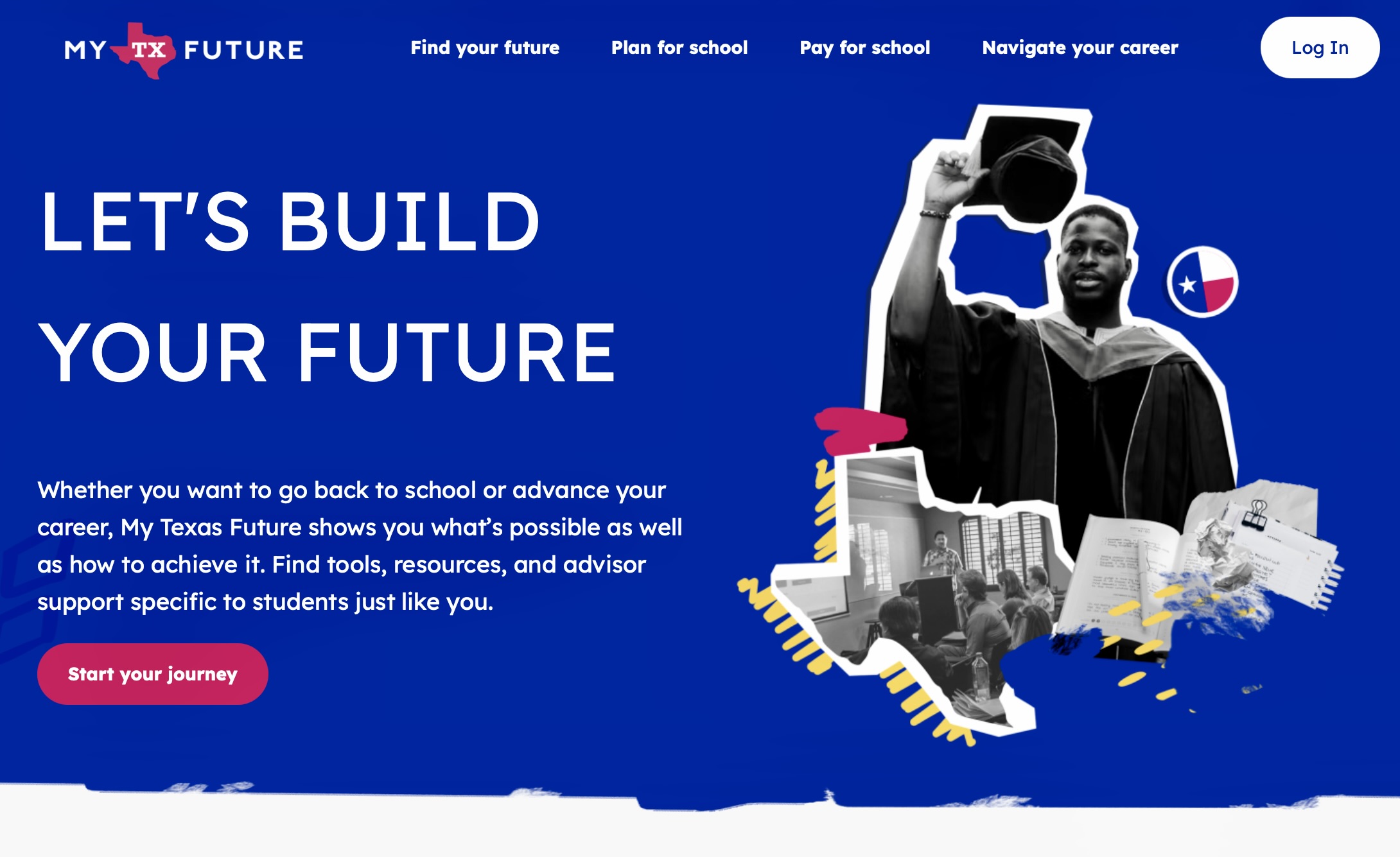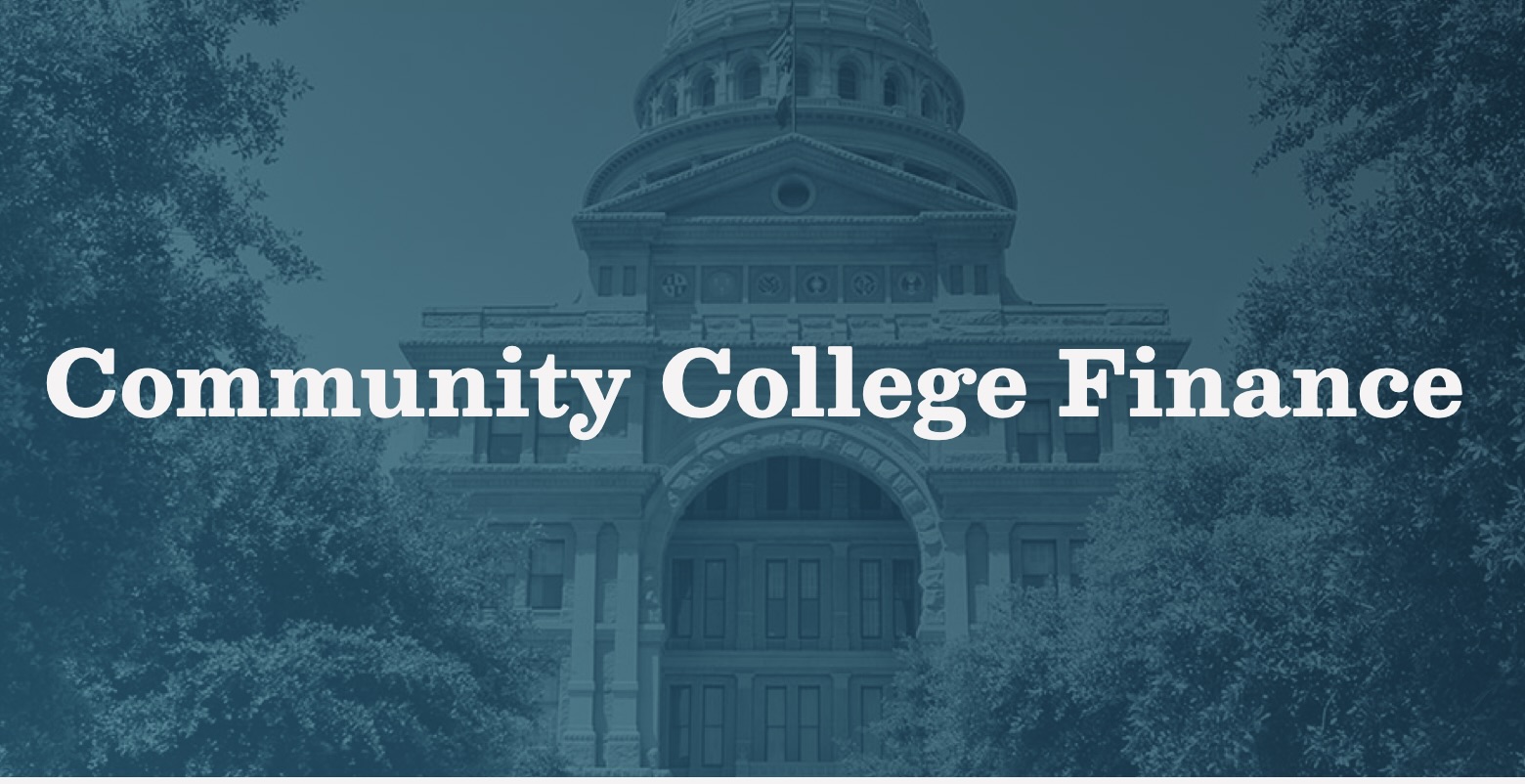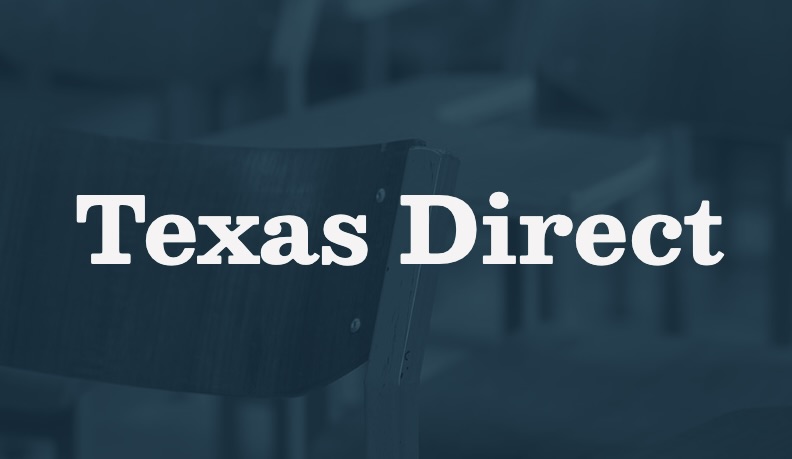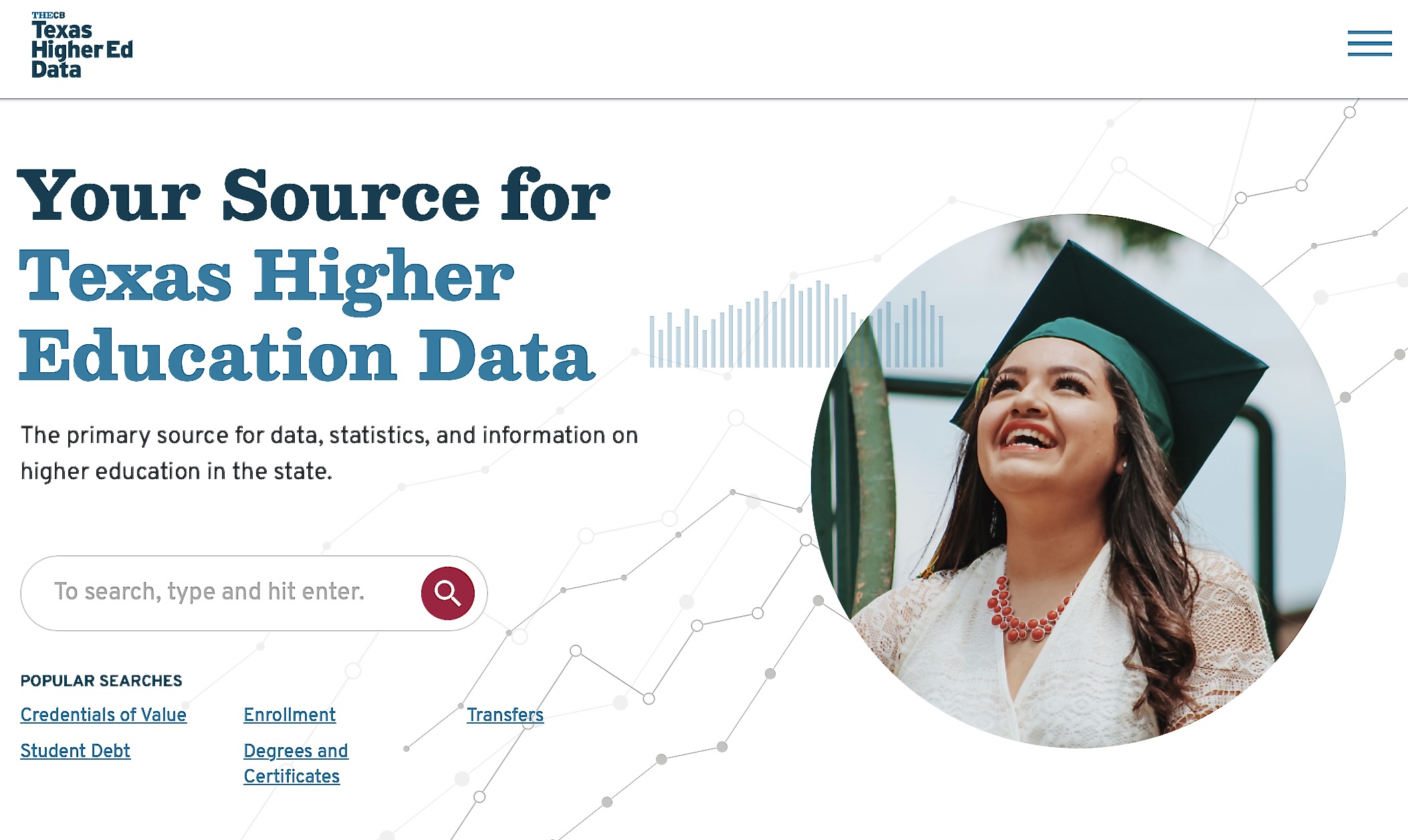Building a Talent Strong Texas. The pace of change in the Texas economy has accelerated dramatically, especially in the wake of the COVID-19 pandemic. In response, Texas officials led by Commissioner Keller determined the state’s strategic plan for higher education should be updated with a renewed focus on students completing degrees, certificates, and other credentials with purpose and value. With this new strategic plan, Texas became the first state to condition its completion goals on the value of postsecondary credentials in the state labor market. Building a Talent Strong Texas metrics have been incorporated into multiple state programs and initiatives, from community college finance to state funding for university-based research, development, and innovation.
My Texas Future. Students, parents, and advisers often rely on internet searches to explore potential college and career options. Most are familiar with only a few websites, institutions, and programs. To better inform students’ critical decisions, Commissioner Keller initiated development of a one-stop Texas state portal, with curated resources about career opportunities and higher education programs including typical costs and earnings. This award-winning online resource has been developed with stimulus funds allocated by the Governor and legislative leadership, private philanthropy, and appropriations by the Texas Legislature.
Community College Finance Reform. For decades, the majority of state formula funding for Texas community colleges has been based on seat time, regardless of outcomes, and without significant adjustments for student needs or the unique challenges of operating small and property-poor colleges. From 2021 through 2023, Commissioner Keller worked closely with policymakers, college leaders, and stakeholders to design, pass, and implement a comprehensive reform of the community college finance system. This historic legislation (HB 8) increases state funding for community colleges by more than 30 percent, including a dynamic outcomes-based funding formula adjusted for student needs and aligned with the state’s strategic plan for Building a Talent Strong Texas, dramatically increased financial aid, and targeted support for small, rural colleges.
Research, Development, and Innovation. Texas is now the world’s eighth largest economy, yet it has had only two public universities regularly counted among the top 200 in the world. In the 88th Legislative Session, Commissioner Keller worked closely with policymakers to design and pass historic increases in funding for university research, development, and innovation, including creation of a nearly $4 billion endowment for the state’s emerging research universities that do not benefit from the Permanent University Fund, additional investments in public research and comprehensive universities aligned with the state’s strategic plan, and more than $1.75 billion in new investments for research, development, and commercial activities related to semiconductor and space/aerospace technologies.
Direct Transfer Degrees. Transferring credits from two-year to four-year institutions has often been confusing and frustrating for students and policymakers, as thousands of lower-division credits each year are not transferred and applied to students’ Bachelor’s degree programs. In 2019, Commissioner Keller declared transfer to be one of the major priorities for the agency. Working closely with institutional leaders and policymakers, Commissioner Keller and his team developed a new governance model and implementation plan to streamline transfer, which is already being used to define Associate’s degree pathways called Texas Direct Transfer Degrees that guarantee the applicability of up to 60 credit hours towards Bachelor’s degrees.
Data Modernization. The State of Texas has long been recognized for the scope of its educational and workforce data, and by statute the Coordinating Board is designated as the steward of these combined data sets. However, the data has primarily been collected and used for regulatory purposes and is challenging to access and analyze. One of Commissioner Keller’s main priorities has been the modernization of the underlying data infrastructure, to make data more readily accessible and useful for powering advising tools and informing institutional and policy decisions. With support from the Governor and legislative leadership, private philanthropy, and the Texas Legislature, Commissioner Keller and his team initiated and are leading a comprehensive data modernization initiative. New public data reports and detailed privileged reports for institutional leaders are being released beginning in Summer 2023.
Texas Leadership Scholars. Thousands of high-achieving, low-income students do not enroll directly in higher education after high school graduation. To encourage these talented students to develop their potential through higher education, Commissioner Keller worked with the Governor and legislative leaders to establish an intensive financial aid and leadership development program for high-achieving, low-income students. The program launched in Fall 2022 with more than 250 undergraduates. In 2023, the Texas Legislature appropriated funding to expand the program to 300 undergraduates per cohort and add support for 75 graduate students each year pursuing research doctorates at Texas public universities.
Texas First Diploma. High-achieving high school students sometimes exhaust the academic options available in their high schools and lose momentum. Unfortunately, this can put their success in competitive majors in jeopardy. State policymakers and higher education leaders have also noted that out-of-state institutions vigorously recruit Texas students, who can often end up paying more than if they had enrolled in-state. In response, Commissioner Keller worked with policymakers to design, pass, and implement a groundbreaking competency-based early high school graduation option. Students who demonstrate early readiness based on measures set by Texas universities may receive their high school diplomas up to a year early, with portable scholarships they can use to enroll at any Texas public college or university.
FORWARD Loan Program. Texas is the only state that operates a student loan program backed by the full faith and credit of the state through general obligation bonds. In 2022, Commissioner Keller worked with the board and state policymakers to create a new $200 million revolving fund within the state’s College Access Loan program to provide low-interest student loans for high-demand academic and workforce credentials. The 2022-23 rate is 3.85 percent. Students’ repayment of these loans from their increased earnings will replenish this revolving fund and “pay it forward” to give other students this opportunity.
Texas Tuition Promise Fund. Uncertainty about the costs of college are a major challenge for many students and their families, undermining their confidence about whether college is possible. Most states have closed their prepaid college savings plans to new enrollments, however, because the designs of those plans proved to be too vulnerable to rapid changes in financial markets and tuition increases.
In 2007, Dr. Keller worked with the Texas Legislature and the Texas Comptroller’s Office to design, pass, and implement an innovative 529 prepaid college savings option that enables families to protect their college savings from future tuition increases at public colleges and universities. The design ensures the Tuition Promise Fund is financially sound even in uncertain economic times. The program also includes scholarships to incentivize college savings through the Match the Promise Foundation.
